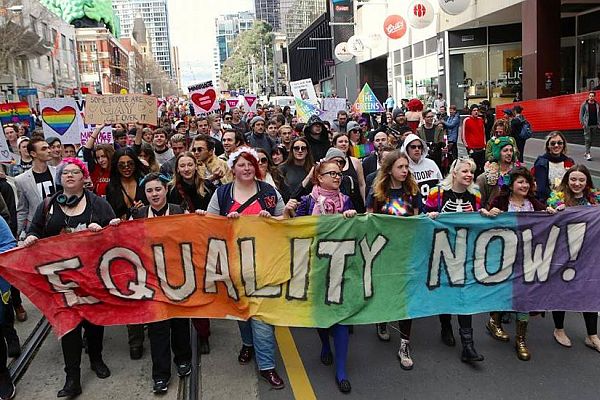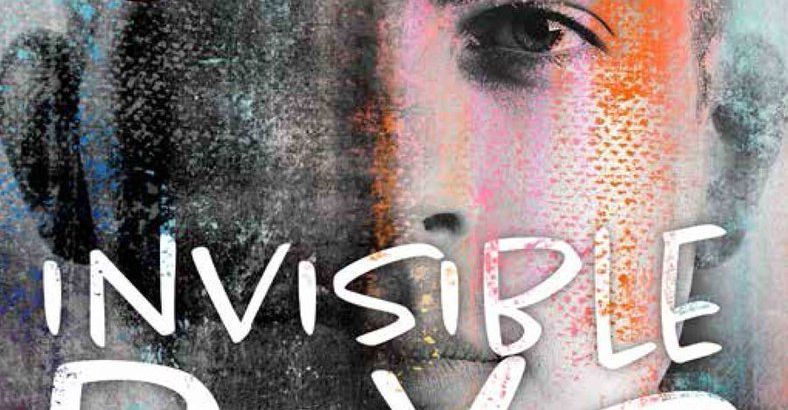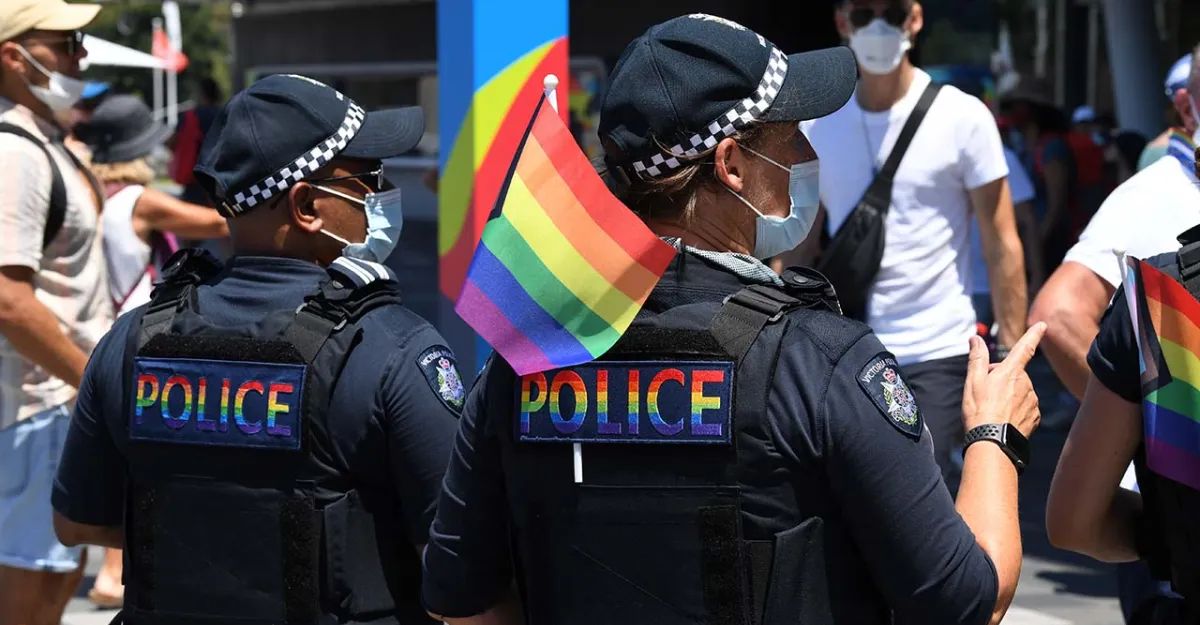Abuse and violence are scrawled deep into the DNA of our legislative system, where a small number of wealthy people draft the laws that dictate how and where LGBTIQ+ people can live, study, and work. Recently, so-called ‘religious freedom’ laws – also known as ‘the right to discriminate’ – have been the centre of debate.
The Yes campaign won a decisive victory during the postal survey of 2017, and returned a clear majority of 62%. We saw rallies of over fifty thousand people on the streets demanding change, and this popular pressure was enough to force parliament into passing marriage equality. But this victory did not come without struggle, and it did not happen overnight.
The campaign for marriage equality began in August 2004, when Prime Minister John Howard amended the Marriage Act to specifically exclude marriage between anyone other than men and women. He did so with the support of the Labor party. This homophobic reform was part of an ongoing effort by the Howard government to create division by scapegoating minorities.
It took over ten years to challenge this deliberate strategy of homophobia and transphobia by the Liberal party and their enablers. Whenever the Right felt its capacity to practice homophobia and transphobia was threatened, it would retreat into a response that can be summed up with ‘it’s a human right to be homophobic’. The Labor party – then led by atheist and Labor Left member Julia Gillard – allowed a conscience vote so that its homophobic MPs wouldn’t be required to vote for marriage equality, and introduced religious exemptions into their update of the Sex Discrimination Act.
After the victory of the marriage equality campaign, the Christian Right has been invoking the same strategy of insisting on special rights to practice homophobia as it sought to get its revenge against the Yes campaign. Speaking of a gay and transgender inner-city elite persecuting Christians, it has invented a narrative around the defence of the so-called religious freedom to abuse and exclude the LGBTIQ+ community. This is why its members rally around bigoted millionaires with investment portfolios, like Israel Folau, and workshop religious-freedom legislation. They then give talks about the dangers of LGBTIQ+ people, while the Liberal Party conferences debate implementing a burqa ban. Religious freedom is clearly only reserved for the white population in Australia.
At no point has this campaign by the Christian Right been about the rights of people of faith, or guaranteeing freedom of religion. Leading figures inside the Liberal party have repeatedly argued that Islamophobia is not a concern, and supported calls to end immigration for people of Muslim faith. Meanwhile, most religious people support marriage equality, oppose the religious exemptions to discrimination and outright reject the idea of religious-freedom legislation to protect bigots. This push by the Christian right is entirely about entrenching the scapegoating of LGBTIQ+ people, and empowering bosses and the leaders of religious institutions to exploit and mistreat workers and students.
This is why it’s important that we not only oppose the existing religious exemptions, but also that we decisively oppose any narrative that so-called religious freedoms need to be expanded. Recently, organisations that are respected within the LGBTIQ+ community, such as Equality Australia, have come out with statements in support of a religious freedom bill, causing significant uproar. Most people recognise that this position concedes to the propaganda of the Christian Right in Australia that its members are a minority oppressed by the gay agenda. We should not welcome the chance to amend legislation which exists only to further empower some of the worst sections of the Right.
It is for this reason that it is important that NGOs, trade unions, and political forces like the Greens and Labor unite on a principled opposition to religious-freedom laws, as well as against the omnibus bill, and commit to removing religious exemptions to discrimination. We must reject outright the framework of the Right, and make the case on our own terms for a Human Rights Act that is based on equality rather than scapegoating. This fight will be long and hard, and will require ongoing grassroots organising and protest if we are to challenge the idea that homophobia and transphobia are acceptable.
Earlier this month was the first of a series of protests against the right to discriminate. The large rally in Sydney on the 3rd of August was organised by Community Action Against Homophobia and heard from Rodney Croome of just.equal, Jenny Leong – the Greens MP for Newtown – Fr Rod Bower, Norrie mAy Welby. A key message from all speakers was to challenge the notion that the religious freedom bill has anything to do with actual religious freedoms, and that we need to come together to remove the right to discriminate.
If you wish to be part of this fight, then you can join the upcoming rallies on 17 August in Brisbane, 24 August in Perth, and 31 August in Melbourne and Canberra. You can also follow Community Action Against Homophobia on Facebook for all campaign updates.



